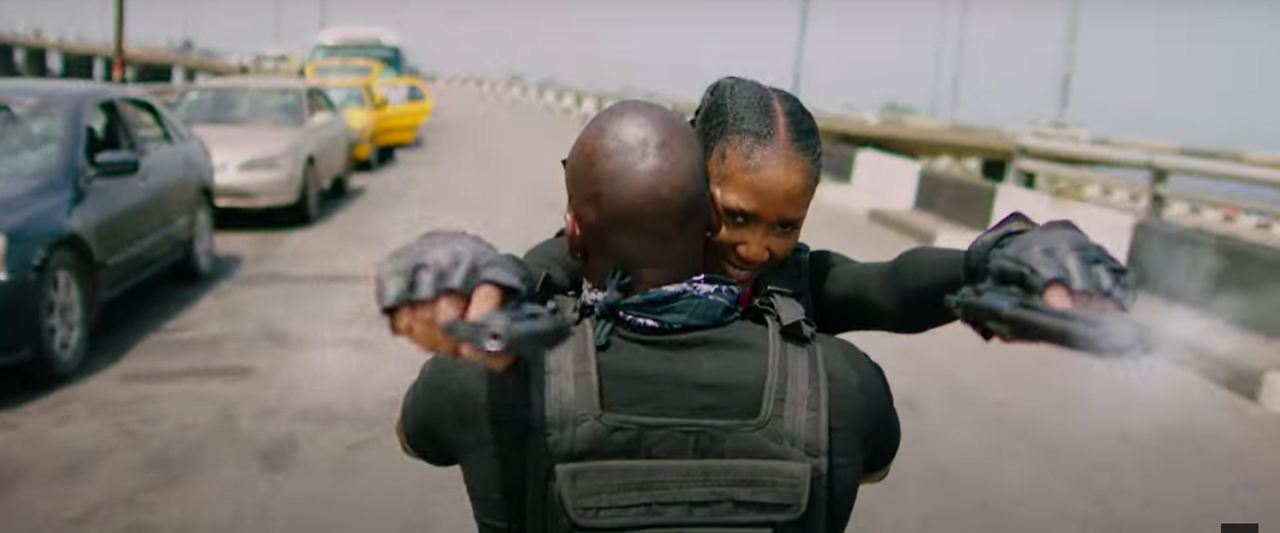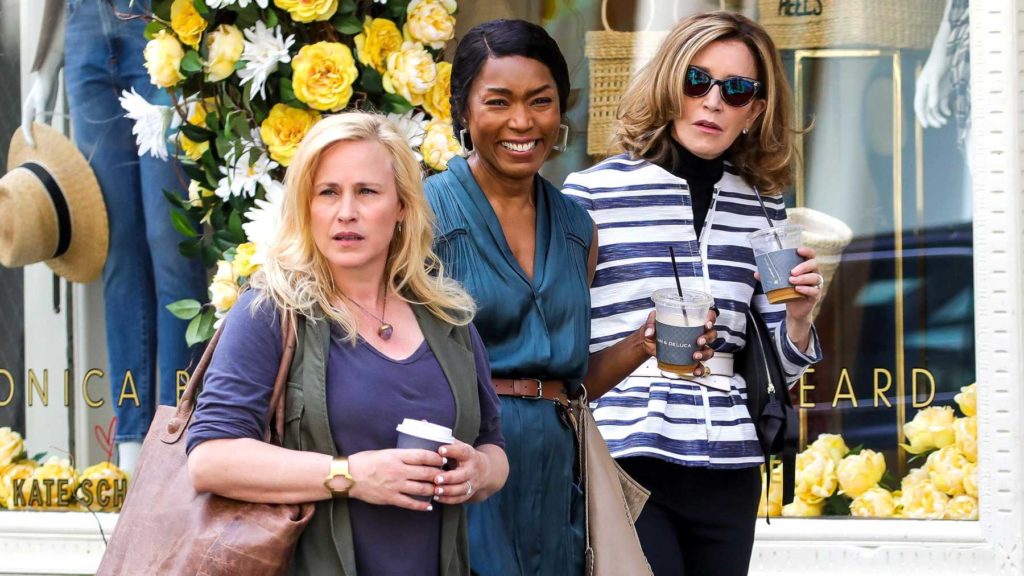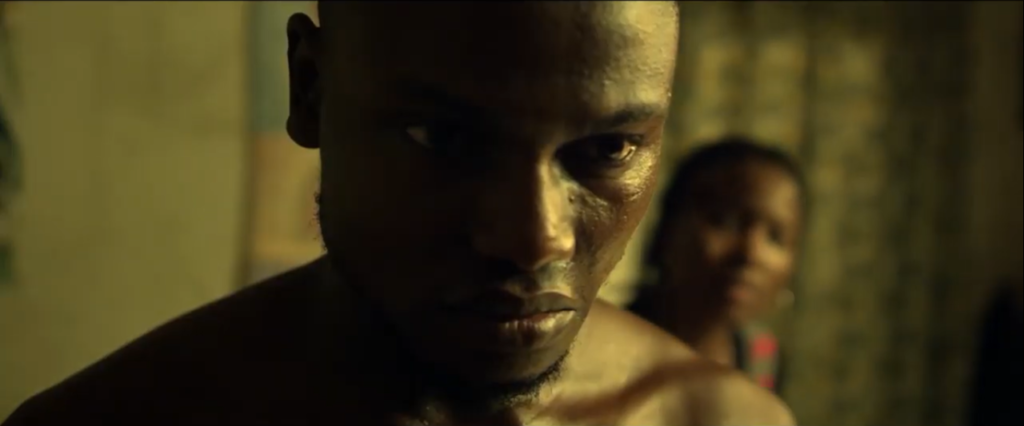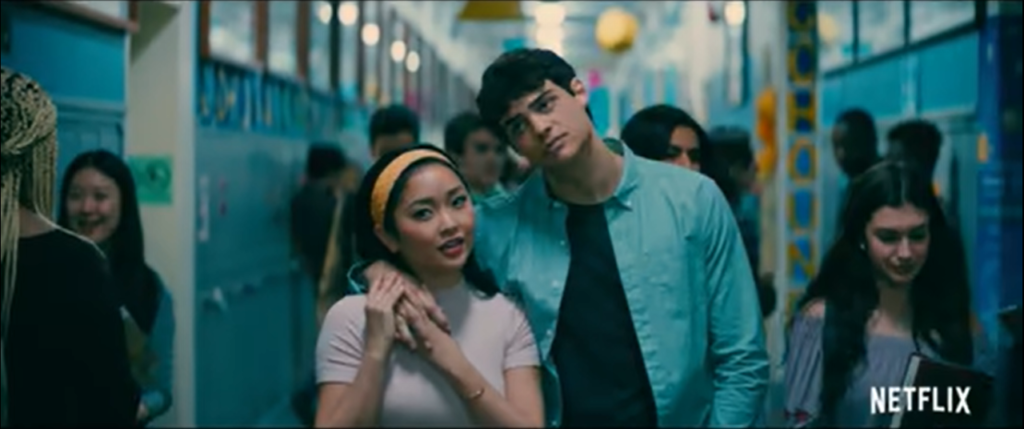Tobi Bakre as Andy was one of the most pleasant surprises in “Sugar Rush.” Three years on, that role has paved the way for Bakre’s most recent outing as Akin in “Brotherhood.”
Also produced by Jade Osiberu, “Brotherhood” makes Bakre a Nollywood actor to be reckoned with, amidst several ex-Big Brother Naija participants – Boma Akpore, Dorathy Bachor, Diane Russet and Seyi Awolowo who also star in the film.
Perhaps the most exciting Nollywood action films in recent times are “King of Boys” and “Seven.” Now, “Brotherhood” joins that list. This crime-action thriller gives the audience the sense that Nollywood action filmmakers are coming of age although “Brotherhood” was directed by Ugandan filmmaker Loukman Ali.
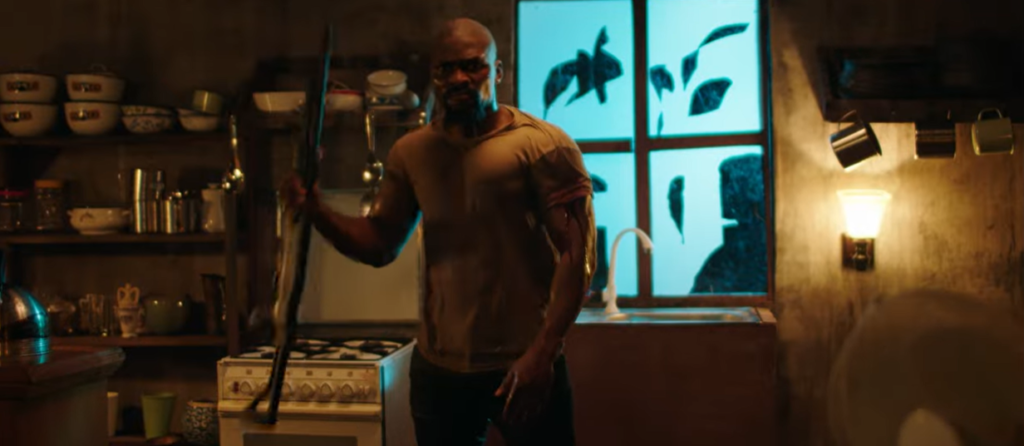
It is the story of twin brothers, Wale (Folarin “Falz” Falana) and Akin (Bakre), who chose different paths. The orphan brothers grew up in the streets. While Wale chose the path to become a police officer, after committing a misdemeanour as a child, Akin on the other hand would spend the next 10 years in and out of prison.
Wale is drafted into the SWAT team at the same time as Akin is released from prison. Meanwhile, their aunt, portrayed by Ronke Oshodi-Oke, is moving in temporarily with Wale because her neighbourhood is being terrorised by a gang of robbers known as the Ojuju Boys. Wale makes a promise to bring them down. Akin decides to stay in his aunt’s house and later encounters an acquaintance, Izra (O.C. Ukeje), and a member of the Ojuju Boys. Izra introduces Akin to his boss Shadow (Bright “Basketmouth” Okpocha) and Akin joins the Ojuju Boys. He spearheads a series of robberies that put him on the wrong side of the law and leaves his twin brother conflicted.
The star-studded action film also features Omawumi Magbele, Steve Dede and Toni Tones. It is refreshing to see Falz in a serious role but unlike Falz, fellow comedian Basketmouth does not do well in a non-comic role. He is not a believable gangster. It is however pleasurable to have Ukeje grace the Nolloywood big screen after a hiatus. He is convincing in his role and his costume designer did a good job. Tones and Oshodi-Oke also give stand-out performances but none is quite as outstanding as Bakre. Akin is the anti-hero you end up rooting for.
“Brotherhood” has a strong action scene at the beginning that is characterised by believable crossfires and an even stronger end. Also particularly noteworthy is the use of motorbikes in the heists. It makes the story locally relevant as does the use of Yoruba, Pidgin English and Igbo in the dialogue. You will chuckle every time Akin and Wale exchange pleasantries by referring to each other as olopa and odaran.
All in all, Osiberu and Abdul Tijani-Ahmed’s storytelling could have been tighter. There are underdeveloped characters and missing backstories. Izra had been presented as hot-headed, but greed eventually took him down. More so, his betrayal of Shadow is unfounded. When and why did the relationship turn sour? Yet, you forgive the lapses in the storytelling because “Brotherhood” is action-packed and entertaining.
“Brotherhood” is showing in cinemas and as for Genesis Pictures, the film adds a feather to its cap because it seemed like all the blockbusters were distributed by FilmOne.

